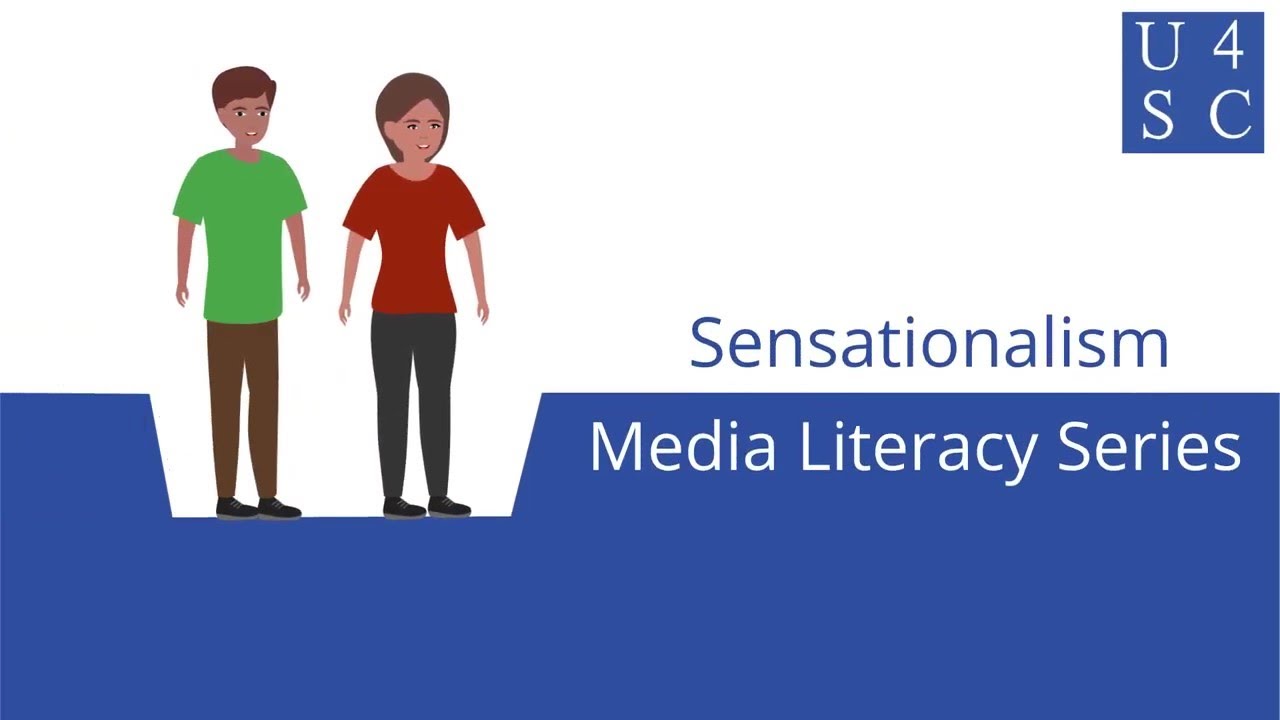The Impact Of Sensationalism And Shock Tactics In News Reporting - Impact On Individuals And Society
The impact of sensationalism and shock tactics in news reporting is often used by media outlets to attract more viewers, readers, or clicks on their articles, as it has been shown that sensationalist and shocking stories tend to generate more interest from the public.
Apr 07, 202310.1K Shares561.6K Views

News reporting plays a crucial role in informing the public about events happening around the world. Journalists and media houses have a responsibility to report objectively and accurately, but the use of sensationalism and shock tactics has become increasingly prevalent.
In this article, we will explore the impact of sensationalism and shock tactics in news reportingand their effects on individuals and society.
What Is Sensationalism And Shock Tactics In News Reporting?
Sensationalism and shock tactics are journalistic practices that involve using exaggeration, emotive language, and images to create sensational and attention-grabbing news stories.
The impact of sensationalism and shock tactics in news reporting is often used by media outlets to attract more viewers, readers, or clicks on their articles, as it has been shown that sensationalist and shocking stories tend to generate more interest from the public.
Sensationalism involves using over-the-top or exaggerated language and images to make a story seem more exciting or dramatic than it actually is. This can involve using sensationalist headlines or images that are designed to shock or provoke an emotional response from the reader or viewer.
Sensationalist reporting often focuses on the negative aspects of a story, such as crime, scandal, or disaster, and can often be misleading or inaccurate. Shock tactics involve deliberately using graphic or disturbing images or language to elicit a strong emotional response from the audience.
This can involve showing violent or graphic footage, or using language that is designed to shock or offend. Shock tactics are often used to draw attention to a particular issue or to create a sense of urgency around a particular cause or event.
While sensationalism and shock tactics can be effective in attracting attention, they can also have negative consequences. This approach can lead to a culture of fear and anxiety among the public, as well as perpetuating stereotypes and prejudices. It can also create a sense of mistrust and cynicism toward the media, and undermine the credibility of journalism.
Impact On Individuals
The use of sensationalism and shock tactics in news reporting can have a significant impact on individuals. When individuals are exposed to sensationalist and shocking stories repeatedly, it can lead to desensitization, where they become less emotionally responsive to the news.
This desensitization can lead to a lack of empathy and can contribute to a feeling of hopelessness or helplessness, which can be damaging to an individual's mental health.
In addition, sensationalist and shocking news stories can cause fear and anxiety, especially in vulnerable individuals, such as children or those with mental health conditions. The repeated exposure to graphic or violent images can trigger trauma, leading to long-term psychological effects.
This impact can be particularly harmful when the sensationalist or shocking news stories are not balanced by positive or neutral stories that provide a broader perspective.
Impact On Society
Sensationalism and shock tactics in news reporting can have a significant impact on society. The use of exaggerated, emotive language and images to attract attention can shape public opinion, reinforce prejudices, create a culture of fear, and decrease social cohesion in society.
One of the primary impacts of sensationalism and shock tactics is the shaping of public opinion. The media has a significant role in shaping how people perceive the world around them, and the use of sensationalist tactics can influence how people view certain issues or groups of people. This can perpetuate stereotypes and prejudices, leading to discrimination and social injustice.
The use of sensationalism and shock tactics can also create a culture of fear. When the media consistently reports on stories using sensationalist language and images, it can create a perception that the world is a dangerous and unpredictable place. This can lead to anxiety and fear among individuals, which can affect their behavior and their interactions with others.
Moreover, sensationalist reporting can decrease social cohesion in society. When the media portrays certain issues or groups of people in a negative light, it can create divisions within society. This can lead to mistrust, prejudice, and discrimination, which can ultimately undermine social cohesion and harm community relations.
The negative the impact of sensationalism and shock tactics in news reporting on society can be mitigated through responsible and balanced reporting. Media outlets should prioritize accuracy, objectivity, fairness, and responsibility in their reporting, and avoid using sensationalist language and images to attract attention.
By doing so, the media can help to create a more informed and engaged public, promote social cohesion, and contribute to a more just and equitable society.

Sensationalism: Breaking News! Watch This Video Now! - Media Literacy Series | Academy 4 Social ...
The Role Of Media Ethics
Media ethics are a set of principles that guide journalists and media houses in their reporting. These principles include accuracy, objectivity, fairness, and responsibility. The use of the impact of sensationalism and shock tactics in news reporting violates many of these principles, leading to a loss of trust in the media and its ability to inform the public.
Media ethics can provide a framework for responsible and balanced reporting, which can help to counteract the negative effects of sensationalism and shock tactics. By providing accurate and balanced information, journalists can help to counteract the spread of misinformation and contribute to a more informed and engaged public.
People Also Ask
What Impact Do Sensationalism And Shock Tactics Have On Individuals?
Sensationalism and shock tactics can lead to desensitization, fear, anxiety, and the perpetuation of stereotypes in individuals.
What Impact Do Sensationalism And Shock Tactics Have On Society?
Sensationalism and shock tactics can shape public opinion, reinforce prejudices, create a culture of fear, and decrease social cohesion in society.
What Are Media Ethics?
Media ethics are a set of principles that guide journalists and media houses in their reporting, including accuracy, objectivity, fairness, and responsibility.
What Is The Role Of Media Ethics In Countering The Negative Effects Of Sensationalism And Shock Tactics?
Media ethics can provide a framework for responsible and balanced reporting, which can help to counteract the negative effects of sensationalism and shock tactics and promote a more informed and engaged public.
Conclusion
The impact of sensationalism and shock tactics in news reporting is a complex issue that requires a nuanced understanding of its effects on individuals and society. Sensationalist and shocking news stories can lead to desensitization, fear, and the perpetuation of stereotypes, which can have significant consequences for individuals and society as a whole.
Media ethics can provide a framework for responsible and balanced reporting, which can help to counteract these negative effects and promote a more informed and engaged public.
It is the responsibility of journalists and media houses to report objectively and accurately and to consider the impact of their reporting on the public. Only then can the media fulfill its role as a watchdog of society and a provider of unbiased and trustworthy information.
Latest Articles
Popular Articles
